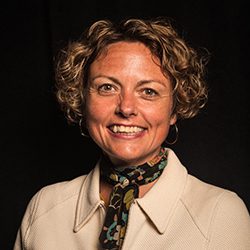Coaching Strategies to Navigate and Overcome Climate Anxiety
Every day, the news highlights the growing impact of climate-related disasters. We hear about catastrophic flooding in Brazil, Kenya, and China. Near-record breaking heat waves in India. Widespread wildfires in Chile. And the Caribbean’s earliest Category 5 hurricane, Hurricane Beryl, in July 2024.
Unsurprisingly, many people are feeling anxious about the state of our planet. And while anyone can experience climate anxiety, at-risk groups include young people, sustainability leaders, and especially those directly impacted by natural disasters.
With climate anxiety on the rise, more coaches will interact with clients facing disruption in their personal and professional lives. A survey conducted to measure climate anxiety in Gen Z found that feelings related to climate change disrupted the daily lives of almost half of respondents.
For sustainability leaders and climate activists, the growing sense of hopelessness about climate change can hinder their effectiveness and even lead to burnout.
Helping Clients Move From Anxiety to Empowerment
While niche coaching practices have evolved to address challenges related to this new eco-anxiety, coaches do not need to be climate change experts to support clients experiencing climate anxiety.
One key strategy is to reframe anxiety as “overwhelm,” that feeling of being overloaded before we shut down. Coaches can help clients process these emotions and reinforce their sense of empowerment.
One way to approach this process is using Self-Determination Theory, a behavioral theory of human motivation. According to this theory, humans have three basic psychological needs that support motivation for action: autonomy, competence, and relatedness.
- Autonomy is the need to feel control over one’s actions.
- Competence is the need to apply skills and knowledge to make a difference.
- Relatedness is the need for supportive relationships.
Coaches can partner with clients by integrating Self-Determination Theory into their coaching practice. This theory allows coaches to take a future-focused approach that values sustained motivation over short-term impact.
Making Big Problems Manageable
Climate anxiety often stems from the vast scope and complexity of climate change. Breaking these challenges down into smaller pieces can help clients regain a sense of autonomy.
A useful tool to help in this process is the concept of Circles of Concern, Influence, and Control, popularized by the late Stephen Covey of The 7 Habits of Highly Effective People fame.
Working through this concept can help clients visualize their challenges, starting with those concerns beyond their control and then focusing inward on what the client can influence.
Building Confidence and Competence
Support a client’s sense of competence by reinforcing client confidence, acknowledging past progress, and championing client growth. Focusing on what is going well helps clients remember their ability to learn new skills and overcome unfamiliar challenges.
Coaching sessions provide a safe space for clients to practice new skills or brainstorm how unused skills might help them achieve their goals. This nurtures a sense of competence and resilience.
Strengthening Connections
The coaching relationship offers a non-judgmental and supportive thought partnership that meets the need for relatedness in Self Determination Theory. Additionally, by helping clients build community connections, coaches enhance their sense of belonging and collective empowerment. Sharing passions and skills with family, friends, or a broader social circle amplifies the impact of any one individual.
Exploring Future Scenarios
Another way to approach coaching for climate anxiety is by encouraging clients to explore various future scenarios. Coaches can start by helping clients identify four expectations for the future:
- What do I expect the future to look like?
- What if the future is better than I expect?
- What if the future is worse than I expect?
- What if the future is weirder than I expect?
By building off these outcomes, clients can map potential futures using a Voroscope, or “futures cone,” to rank the likelihood of possible outcomes.
By identifying their expected, better, worse, and weirder futures, clients can gain clarity and redirect their focus towards those outcomes they can have a hand in bringing about.
Supporting Sustainability Professionals
Sustainability professionals face unique challenges. The urgency of climate action combined with the complexity of the work can lead to anxiety and a sense of defeat. Despite the passion these folks have for creating positive change, the overwhelming nature of their work can take a significant toll on their well-being.
Amid these challenges, coaching offers guidance to navigate the emotional complexities of climate anxiety by establishing sustainable self-care practices.
According to Wisdom Weaver and Climate Change Coach Charley Cox, burnout is a significant issue in the sustainability sector because many feel their work is too important to pause for a break. She suggests that prioritizing personal care can be a form of rebellion against the pressures of busyness and burnout. That rebellion can begin with coaches challenging harmful notions of busyness and burnout, empowering individuals to prioritize self-care and resilience.
Charley also advocates for a paradigm shift toward what she calls “Inner Development Goals” because she recognizes that addressing societal and environmental issues first requires an inward journey addressing current skill gaps.
By advocating for inner development, coaches can foster a culture of sustainability in the workplace. And by prioritizing well-being, individuals can mitigate burnout and cultivate the resilience necessary for sustained engagement with environmental challenges.
Explore how coaches support self-care and community-care for clients in the sustainability sector.
Climate Anxiety and the Future of Coaching
As climate disasters become more frequent and intense, coaches will play an integral role in helping clients address the fears and anxiety related to climate change.
Through coaching tools and futures-thinking, coaches can empower and equip leaders to face the challenges ahead with confidence and resilience.
Learn more about how coaches are helping clients overcome climate anxiety overwhelm and how they can support ecological well-being in general.


